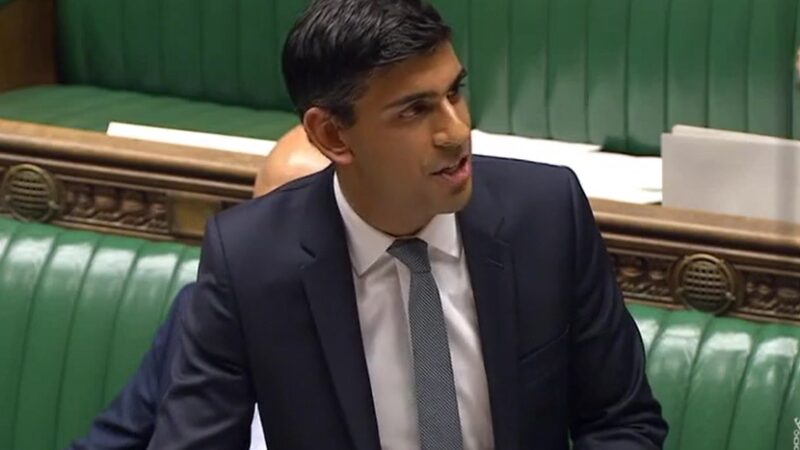'Getting to net zero fairly is essential'

More than two thirds of the areas most likely to lose out from the government’s net zero plans fall in Tory-held seats from rural southern England to the electorally-critical ‘Red Wall’, according to new research.
The Centre for Progressive Policy (CPP) think tank has identified the 74 areas in Great Britain it believes are most likely to suffer economic harm and disruption from the Treasury’s currently-preferred route towards decarbonising Britain’s economy.
Many of those areas include Tory seats in historically-Labour-voting parts of the north of England and Midlands now referred to as the Red Wall. It is thought that this territory will again prove a key battleground in the next general election.
Towns like Hartlepool and Redcar face enormous challenges to their local economies, the CPP says, with traditional manufacturing areas facing the prospect of large-scale job losses as carbon-intensive work is gradually phased out. 37 of the most at-risk localities highlighted by the group have been classed as ‘extremely vulnerable’ and 9 million people are thought to be exposed to economic harm under the present net zero strategy, according to the research’s findings.
As the Cop26 talks in Glasgow enter their second week, the authors of the report have stressed the need for a ‘just transition’ to be at the heart of the UK’s decarbonisation strategy going forward.
“Getting to net zero fairly is essential,” said Zoe Billingham, co-director of the CPP.
“Our research has revealed the variation in economic risk between communities which must be dealt with head on as we move towards net zero.”
She also underlined that a “truly just transition will consider the lived realities and unique needs of each community.”
The CPP is working with the collection of local authorities and political leaders that comprise the Inclusive Growth Network (IGN) to push for an equitable green transition strategy to reflect the deep-rooted imbalances and inequalities characterising economic areas outside of the UK’s main urban centres.
Ms Billingham added: “We hope that our work will help the central government in pinpointing where to best support citizens in retraining for new, green jobs, where to incentivise new green jobs and the importance of addressing the broader economic resilience of local areas.”
Within the 100 areas most reliant on high-emitting employers, the CPP identified 74 ‘economically vulnerable areas’ and 37 ‘extremely vulnerable high-risk places’, which include both rural parts of the country reliant on agriculture and areas where manufacturing provides the bulk of local employment.
The research also demonstrates that high-emitting jobs tend to be well paid, seeing workers earn on average £680 per week compared to £580 for the rest of the economy.
A number of the infrastructure, energy and in particular new fossil fuel schemes that are being considered by Boris Johnson’s government at present are thought to illustrate the dilemma Number 10 faces over weighing job protection concerns against the need to rapidly decarbonise core sectors of the UK economy.
In this regard, projects like the proposed new coal mine in west Cumbria pose not only a domestic electoral test of his administration, but also a test of its decarbonisation pledges and its stated ambitions to be a climate leader internationally.
Critics have suggested that a reluctance to commit the requisite degree of fiscal input needed to oversee a fair and fruitful green transition was forcing it into such zero-sum choices. Former UK climate envoy, John Ashton, said earlier this year that although the government had made some “eye-catching” promises around renewable sectors like off-shore wind, there had “[as] yet [been] no sign that his chancellor is willing to drive investment towards net zero on any credible scale.”
The mayor of Greater Manchester, Andy Burnham, whose combined authority forms part of the IGN group, warned that working people must not “bear the brunt of” Whitehall’s chosen route towards achieving net zero.
He said: “Communities on the ground run the risk of being severely damaged by a bad transition to net zero, and it’s essential that local leaders stand up to defend our citizens against this.
“Spiralling heating and energy costs are impacting everyday people now. The country’s move to net-zero could help tackle this if the transition is managed right.
“We have set up the Retrofitting Task Force to deliver low-carbon homes across Greater Manchester. This kind of direct action to support citizens with the transition is a fundamental part of ensuring ordinary people don’t bear the brunt of delivering carbon neutral economies.”
Tommy Greene is a freelance journalist
Left Foot Forward doesn't have the backing of big business or billionaires. We rely on the kind and generous support of ordinary people like you.
You can support hard-hitting journalism that holds the right to account, provides a forum for debate among progressives, and covers the stories the rest of the media ignore. Donate today.



